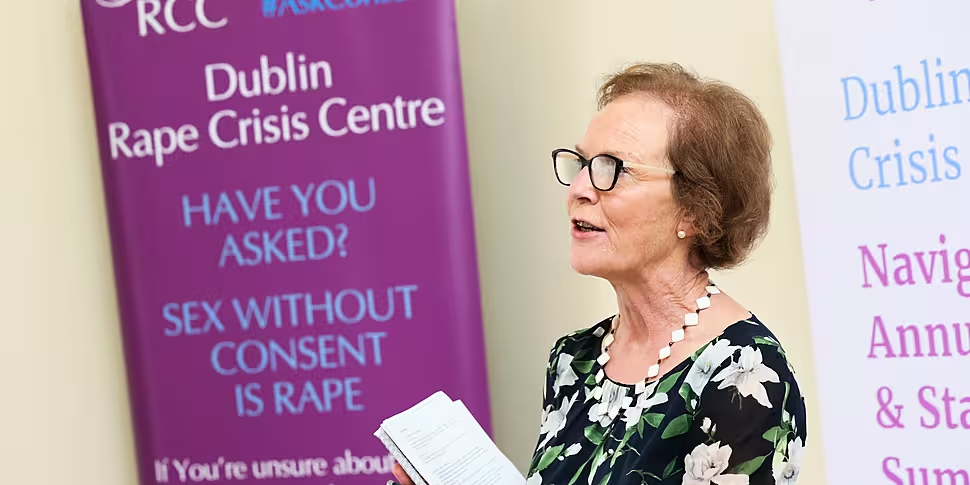The number of victims contacting the Dublin Rape Crisis Centre for help plummeted during lockdown, the organisation has revealed.
Last year, the National Rape Crisis Centre Helpline received 14,000 calls asking for help - but lockdown was when the phonelines were at their quietest.
Such a phenomenon is not unique to Ireland; reports of rape in Scotland dropped by 20% during lockdown, while a report for the US National Library of Medicine similarly concluded that “reporting of sexual assault incidents has further deteriorated under COVID-19 lockdown”.
Once restrictions were relaxed, there was a surge in people seeking help.
Noeline Blackwell, CEO of the Dublin Rape Centre, said the phenomenon was down to a mixture of “new cases and also people who disclosed only after restrictions were lifted.”
“There were two things in 2021,” she explained to Newstalk Breakfast, “one was that again during the times with most restrictions, less people contacted us, less people got the help that they needed.
“That seems to be a feature of the reporting of sexual abuse and rape right around the world… As restrictions lifted, as social life came back, there was that rise in people who were socialising and obviously a rise in the number of reporting as well.”
Long-term increase
Outside of lockdown, the organisation has noticed a steady increase in the number of people contacting them over the years.
It is, staff believe, due to greater awareness of support services for victims.
"We’ve been collecting statistics on the people who contact us for decades and because we run the national 24-hour helpline we probably get a snapshot,” Ms Blackwell said, “but only of the people who know enough to contact us, so we’re not saying it’s the full picture.
“Every single year it’s up [by] 500 contacts, half of them new people. So, we’re getting, every year, an increase in the numbers of people disclosing.”
Annual report
The organisation is publishing its annual report this morning with Minister for Education Norma Foley due to speak at the launch.
It is, Ms Blackwell added, recognition of the hugely important role schools play in tackling sexual violence:
“We see the large part schools have to play in giving our young people the words and the tools and the concepts that they need,” she described.
“Because, quite frankly, as it stands right now, we are coming across young adults who have no information, apart from what they get from their smartphones.
“Alas, what they get from their smartphones is often abusive, wrong, pornographic and it is not teaching them good sexual behaviour.”
If you have been affected by any of the issues mentioned in this article you can contact Helpline of the Rape Crisis Centre on 1800 77 88 88.
Main image: DRCC CEO Noeline Blackwell. Picture by: Sasko Lazarov / RollingNews.ie









